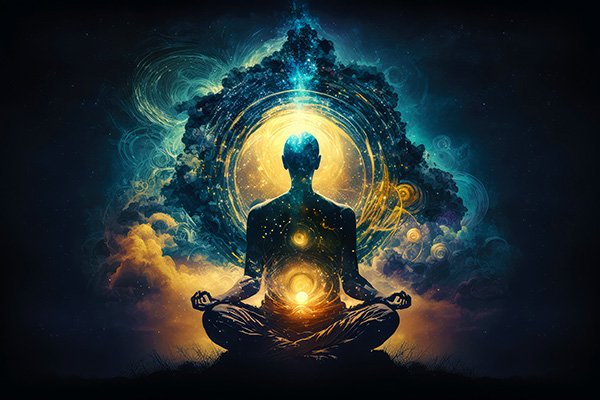highest good
Always Choose Your Gut Over Your Heart And Mind
 We all have a higher purpose in this lifetime, and yet many never awaken to it, much less achieve it, because their ego has become more prominent in their lives than their higher self.
We all have a higher purpose in this lifetime, and yet many never awaken to it, much less achieve it, because their ego has become more prominent in their lives than their higher self.
How do you know if what you are doing is for your highest good? How do you make sure you are aligned with your soul purpose? How do you know if what you want out of life is based on your worldly desires instead of your spiritual mission in this lifetime?
Well, you listen to your inner guidance. You trust your intuition. You follow your gut.
When you were born, a deep-seated dream was placed within you. As children we are often more in touch with our true calling or purpose, but many of us lose that awareness as we grow older. Unfortunately, it has been buried by the expectations of society and the many distractions of the material world.
Often our parents, peers, teachers, and mentors play a significant role in this process of shutting down our spiritual awareness. Has anyone ever laughed at you when you told them what you wanted to do or be? Did someone say, “Go back and think about that because it will never happen”? Each of us has a different story as to why we do or don’t achieve our dreams in life.
Today is the day to decide, “I will achieve my dreams as long as they come from the spirit and are for my highest good.” It is time to look at your dreams for your life from a deeper perspective.
The Divine Spirit Beings Who Guide Our Life Journey
 We are all here for two important spiritual reasons – to serve and to learn. Each of us has a unique calling to fulfill and lessons to learn for karmic growth and soul evolution.
We are all here for two important spiritual reasons – to serve and to learn. Each of us has a unique calling to fulfill and lessons to learn for karmic growth and soul evolution.
The contributions we are meant to make and the lessons we are meant to learn are unique to each of us, and it’s up to us to uncover these aspects of our soul plan as we move through life.
Our guides and angels are a powerful resource in this process, yet they often go unnoticed or even unrecognized. These spirit beings work quietly behind the scenes to provide guidance, support, and protection as we navigate our life journey.
Their primary role is to guide us in fulfilling our mission to be of service, learn our karmic lessons, and to grow. If we don’t fulfill our purpose or learn our lessons, it will keep reappearing in our lives in different ways until we recognize, resolve, accept or own it.
Our guides and angels are always behind the scenes – patiently waiting for us to seek their wisdom and allow them to assist us in fulfilling our soul plan. By connecting with our spirit team, we open ourselves to personal growth and spiritual evolution.
Our spirit and angel guides are benevolent, non-physical beings who serve as intermediaries between the physical and spiritual worlds. Each of us has guides who are assigned to help us, whether we acknowledge their presence or not.
Serendipity, Synchronicity And The Symphony of Life
 Something magical happened yesterday that reminded me of the many serendipities and synchronicities that miraculously unfold in our lives every day without us even noticing. We are in the right place, at the right time, doing the right thing more often than we realize – and it is no accident or coincidence.
Something magical happened yesterday that reminded me of the many serendipities and synchronicities that miraculously unfold in our lives every day without us even noticing. We are in the right place, at the right time, doing the right thing more often than we realize – and it is no accident or coincidence.
There are many moments in our daily lives that seem to happen by luck or chance, yet they are perfectly timed events that have been orchestrated just for us.
These experiences, which many call “fate” or “coincidence,” are certainly not random occurrences. They are part of the intricate symphony of universal flow and divine order that weaves together the everyday magic of serendipity and the miracle of synchronicity for our highest good.
Yesterday I had a long list of errands to run downtown, two of which were on the same street. My intention was to first pick up something from a courier service and then drop off some household items I wanted to donate at a nearby animal charity shop.
However, on the way to the courier, I took a turn that I do not normally take, which took me directly to the charity shop instead. I was relieved to find a parking spot right outside the door as I had some heavy boxes and crates to unload. How ‘lucky’ that there was a perfect parking space waiting just for me, I thought.
But my ‘wrong’ turn turned out to be not only a blessing in disguise, but also a little miracle that kept on giving. Because I arrived at the store earlier than I had originally planned, I “accidentally” ran into a customer in the shop who was in the process of purchasing the kitchen blender I had donated to the charity over a month ago.
Are You On The Karmic Path Of Grace?
 Every step we take in life shapes not only how we feel, but also where we end up in life and how others respond to us.
Every step we take in life shapes not only how we feel, but also where we end up in life and how others respond to us.
Sayings such as “you reap what you sow,” “what goes around comes around,” and “your vibe attracts your tribe” represent the complex interplay between our choices and actions and the reality we experience each day.
This is known as the universal law of cause and effect, also known as the spiritual principle of karma. Every choice we make has consequences, whether seen or unseen. Every action we take – whether physical, mental, emotional or spiritual – has a corresponding result or consequence.
Nothing in life happens by accident. Our values, beliefs, mindset and attitude all help to shape our life path and destiny. Our choices, behaviors, and even our thoughts have a ripple effect. Our free will choices ultimately determine our life journey and the legacy we will someday leave behind.
In essence, the energy or intent behind our actions affects the results we experience in life. Positive actions attract positive results, while negative actions can lead to challenges or difficulties. Over time, the cumulative effect of these causes and their consequences determines the course of our lives, affecting relationships, opportunities, and personal growth.
For this reason, it is essential that we be mindful of everything we say and do. We must cultivate self-awareness and take personal responsibility because every step we take affects our future and our destiny.
The Day The Angels Saved My Life
 I know now that my angels kept me from going to work that day for a reason. I have also learned since that I still had work to do that was important enough to keep me safe from injury or worse.
I know now that my angels kept me from going to work that day for a reason. I have also learned since that I still had work to do that was important enough to keep me safe from injury or worse.
I will never forget the day of the highway accident. It was September 3, 1999, and I had asked to be excused from work, which I never did. I was an office manager at a tool shop, working under a very arrogant accountant who had control issues with the employees.
I had worked there for several years without ever asking for extra time off, but he said no. He didn’t think I should have the day off because it was already a long weekend for us in Canada. The Labor Day holiday would have given me a four-day weekend instead of a three-day weekend.
He then threatened that I would lose my job if I took the day off because he didn’t approve of it and had no intention of changing his mind. But my gut was telling me very strongly that I simply could not go to work that day, I had to take it off. I didn’t know why at the time, I just knew I had to stay home.
So I did the only thing I could think of since my job security was in jeopardy – I went over his head to the owner and got the day off anyway! I later thanked the angels that I did that.
The accident happened about the same time I usually drive through the area on my way to work. I worked in Windsor, Ontario and lived in Valetta, which is almost an hour away. Every day I would get on the Queensline exit, east of Tilbury, and take the 401 to Oldcastle, where the 401 meets the highway. I have to admit I didn’t always drive the speed limit back then. I shudder to think what would have happened to me if I had driven my usual route to work that day!
What To Do When He Is Not Calling You
 When someone you like a lot doesn’t call or even ghosts you, it can really sting. The excitement of a new romance can quickly turn into self-doubt and frustration.
When someone you like a lot doesn’t call or even ghosts you, it can really sting. The excitement of a new romance can quickly turn into self-doubt and frustration.
This is when patience, trust in the bigger picture, and reclaiming your own power become really important.
Patience isn’t just about waiting; it’s about trusting that everything happens in its own time. When someone doesn’t call, it’s easy to panic and think they’re not interested or that you’ve messed up. But patience helps us trust life’s timing. What’s meant for you won’t slip away.
It’s not about sitting around hoping. It’s about realizing that the universe has a way of making things work, even when it doesn’t feel like it.
Trusting that everything happens for a reason helps you let go of the need to control the outcome of your romantic life. You find peace in knowing that what’s meant for you will come to you at the right time.
Trust that everything happens for your highest good. The universe has your back. If someone doesn’t call, maybe they’re right for you. Maybe the timing isn’t right, or there’s someone better just around the corner.
Trusting the universal flow for your highest good helps you let go of the need to control everything and focus on what you can control in life. Controlling how other people behave is not one of them.
A Step-By-Step Guide To Shielding Your Energy
 It is important to be aware of the invisible metaphysical forces that surround us, for not all of them are for our highest good. The energy deficiencies and dysfunctions of others, while often subtle, can have a profoundly harmful effect on our personal and spiritual well-being.
It is important to be aware of the invisible metaphysical forces that surround us, for not all of them are for our highest good. The energy deficiencies and dysfunctions of others, while often subtle, can have a profoundly harmful effect on our personal and spiritual well-being.
We all have to deal with people in our lives who can be particularly draining and unsettling – commonly known as ‘energy thieves’ or ‘psychic vampires’. Like psychic parasites, these people knowingly or unknowingly drain the energetic vitality of others, leaving their victims feeling drained, anxious, depressed, or even physically ill.
For those of us who are particularly sensitive to the energies of others, this can directly affect our physical, mental, emotional, and spiritual health in profound ways.
Energy shielding is therefore an essential spiritual practice for maintaining balance and protecting oneself from such negative influences. This type of energy work is essential for creating a protective auric barrier that ensures that the negative energies of others do not infiltrate your mind, body, or spirit. With the right attitude and some spiritual support, we are never defenseless against the negativity of others.
Energy theft, or vampirism, is not just a matter of superstition; it is something I have observed consistently throughout my life, both personally and professionally. In my own psychic practice, I rely on a robust energetic self-defense routine to ensure that any negative energy directed at me is deflected and rendered harmless.